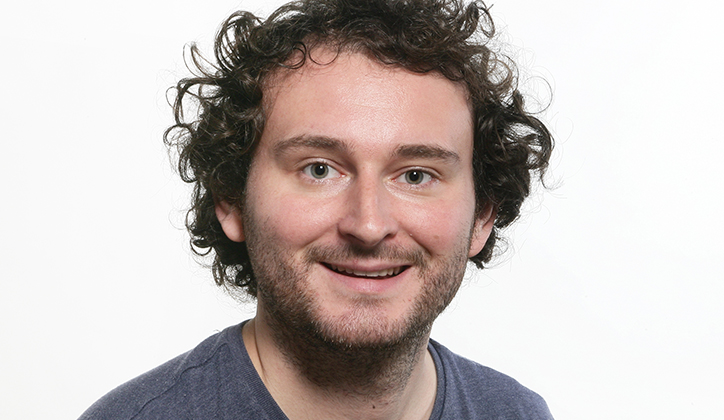We’re profiling nominees in the lead up to the 2014 Macquarie University Research Excellence Awards on Thursday 2 October.
This week meet PhD candidate Thomas Meany from the Department of Physics and Astronomy,who is a nominee for an Excellence in Higher Degree Research – Science and Engineering Award.
How long have you been a researcher at Macquarie?
I have spent three and a half years at Macquarie working on my PhD.
I was drawn to research because…
It’s exciting and every day is a new experience. It’s one of the few jobs where you have a small chance to really change things and make something totally new.
What would be an ‘elevator pitch’ of your research area?
As we race towards faster and smaller computers we are approximately halving the size of a transistor every 18 months according to Moores Law. IBM are considering the next stage of processors which would occupy just 15 nm! To put that in perspective the radius of an atom is 0.1 nm meaning we really are approaching the limit of how small these devices can possibly be.
My research area explores a new type of computing called Quantum Computing, where individual particles themselves are used as the processors. This is a challenging goal, controlling multiple individual atoms is not an easy task! Hence, here in Macquarie we use particles of light, or photons, as our information carrier. This means that we can easily route and manipulate these particles using light wave circuits.
We fabricate these circuits here at Macquarie by drawing out miniature optical fibre roadways in glass microchips. These circuits are great for demonstrating small scale computations and are setting the stage for the next wave of high density quantum circuits.
In layman’s terms, what is the wider impact of your research?
Quantum mechanics has been understood for the last century and led to all of the computing advances that have transformed the way we live. We are currently living in the second quantum revolution. This promises fundamental internet security for banks, companies, countries and private individuals. High speed computers would allow high precision simulations of everything from the weather to the way cancer cells form. This is an exceptionally exciting time with a number of companies with large investments in quantum computing research such as D Wave, Google, IBM, Microsoft, HP and Toshiba.
Who is/was your biggest research mentor?
My supervisor Professor Michael Withford. He is an awesome researcher, a first rate gentleman and a cool guy.
If I were given $1M in research funding, the first thing I would do is…
Try to start a company and double it!
In ten years I see my research…
Looking back at me from my mobile phone, computer screen or a never before seen device.
My favourite and/or most proud research moment was when…
I’ve had a great time doing research and everyday is fun.

